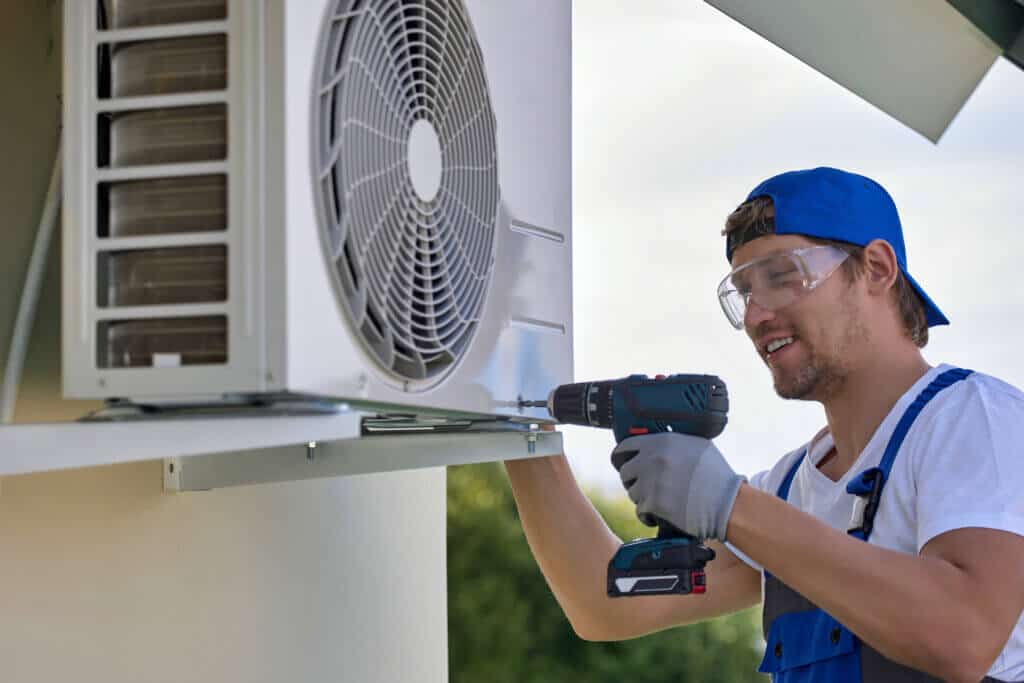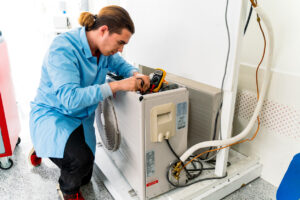Installing a new air conditioning system is a significant investment, and it’s important to budget accordingly. Understanding the factors contributing to AC installation costs can help you make informed decisions and plan your budget effectively. Let’s explore essential considerations when budgeting for your cooling system installation:
1. Type of Air Conditioning System:
The type of air conditioning system you choose will impact the installation costs. Central air conditioning systems typically require more extensive installation assignments, including ductwork installation or modifications. On the other hand, The Ductless mini-split system requires less labor-intensive installation since they don’t require ductwork. Consider the pros and cons of each system type and how it aligns with your budget.
2. Size and Capacity of the System:
The size and capacity of the air conditioning system you need will affect the installation costs. An HVAC professional will calculate the load to determine the appropriate system size for your space. Oversized or undersized systems can lead to inefficiencies and increased energy costs. Investing in a properly sized system ensures optimal cooling performance and efficiency.
3. Additional Equipment and Accessories:
Consider any additional equipment or accessories required for your cooling system. This may include thermostats, air purification systems, or zoning controls. These components can enhance comfort and energy efficiency but will reduce installation costs. Discuss your specific needs with your HVAC contractor to determine additional equipment.
4. Labor and Installation Expenses:
Labor costs for installation can vary depending on factors such as the installation’s complexity, the project’s size, and the location. Experienced and reputable HVAC contractors may charge higher rates, but they bring expertise and quality workmanship to the table. Request multiple quotes from different contractors to compare prices and services.
5. Energy Efficiency Considerations:
While energy-efficient systems may have higher upfront costs, they can lead to long-term savings on your energy bills. Energy-efficient air conditioning systems may qualify for rebates or incentives, which can help offset installation costs.
When budgeting for your air conditioning system installation, consider the type of system, size, capacity, additional equipment, labor and installation expenses, and energy efficiency considerations. Consult with HVAC professionals to assess your specific needs and explore available options. By planning and budgeting appropriately, you can ensure a successful AC installation that provides optimal cooling comfort and efficiency for years.
Need to install AC at a reasonable price? Our experts at Nice Heating and Air are on standby to support you. Don’t allow air conditioner installation costs to hold you back! Plan your budget wisely and get the cooling system you deserve.
Contact us today to discuss your needs and receive a personalized quote for a seamless and cost-effective AC installation. Stay calm and comfortable all year round!
 SEE OUR SPECIALS
SEE OUR SPECIALS SCHEDULE SERVICE
SCHEDULE SERVICE





 Call 703-884-2376
Call 703-884-2376


